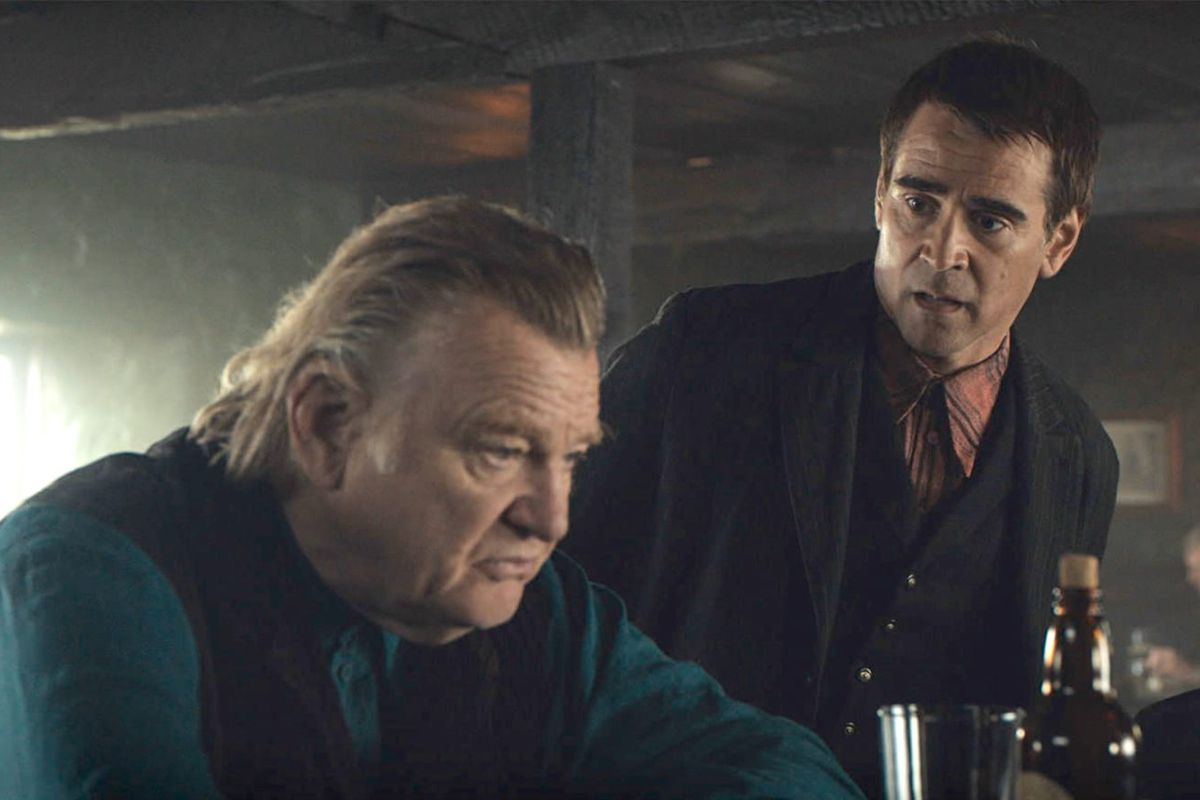
Film Review: The Banshees of Inisherin
Film Reviews
The Banshees of Inisherin
Director: Martin McDonagh
Film4 Productions
In Theaters 11.04
It’s been 12 years since Martin McDonagh first paired Colin Farrell and Brendan Gleeson for the cult-favorite dark comedy In Bruges, and after seeing The Banshees of Inisherin, it’s my fervent hope that he doesn’t wait so long next time.
The Banshees of Inisherin is set against the backdrop of the Irish Civil War of 1922–1923, and it tells the story of two friends, Pádraic and Colm, played by Farrell and Gleeson, respectively. The small island town of Inisherin is the kind of community where everyone knows everyone else, and it’s considered unusual to see Colm without Pádraic in tow. One day, Colm lets it be known that he’s done. He no longer wants to speak to Pádraic or be spoken to by him, and to say that Colm is rather emphatic about the matter is to put it mildly. Pádraic is both confused and hurt, not understanding how his friend can suddenly decide to cast him aside when he remains the same man he’s always been, failing to grasp that his passive and unchanging nature might be exactly the problem. While Pádraic is consoled by his strong-willed younger sister, Siobhán (Kerry Condon, Better Call Saul), who looks out for him in an almost motherly fashion, it seems that the harder Pádraic tries to make amends, the more determined Colm becomes to keep the other man at bay, even if it means taking drastic measures.
While The Banshees of Inisherin leans much more heavily on the comedy than Three Billboards Outside Ebbing, Missouri, consistently providing the biggest laughs and by far the cleverest dialogue of any film this year, it’s also a richly drawn fable that comes with a darker edge than you might expect from the trailers. The Banshees of Inisherin is a brilliantly insightful commentary on the restless melancholy of midlife, the desperate need to find meaning and to leave a lasting mark and the conflicts that arise between us and inside of us. There’s no doubt that there’s a metaphorical element drawing a parallel between a divided country at war with itself and the battle of wills between the two men, and it doesn’t require any particular knowledge of Irish history, as it could just as easily be applied to America today.
It’s a mistake, however, to become so fixated on finding meaning in the subtext of The Banshees of Inisherin that the brilliance of the text itself becomes lost in the shuffle. The needs and desires of both of these stubborn men are quite straightforward and easily relatable: the kind-hearted but frustratingly dim Pádraic is content to stay motionless and content as long as he’s happy and has friends, while Colm’s determination to climb out of a rut and to make something of himself would be hard to fault if he wasn’t so willing to sacrifice his goodness for greatness.
Farrell has long been an outstanding actor, and he’s aging like a fine wine. 2022 has been an astonishingly great year for the too often underappreciated star, and if following up After Yang and The Batman with the most lovably entertaining and tragically heartbreaking performance of his career to date doesn’t cement his place as one of the finest performers of his generation, nothing ever will. Gleeson is every bit as good, expertly balancing comedy and drama in a beautifully layered performance. Condon is superb, making Siobhán one of the most likable characters I’ve seen in a film in some time. Finally, Barry Keoghan (Dunkirk, Eternals) as Dominic, the troubled, odd-duck son of the local constable, gives a performance that is as hilarious as it is heart-wrenching.
The Banshees of Inisherin is an instant classic, a perfect blend of the absurd and the profound, and it’s likely to be one of the defining films of not just 2022 but of the entire decade. –Patrick Gibbs
Check out more Patrick Gibbs articles:
Film Review: All Quiet on the Western Front
Film Review: Till
